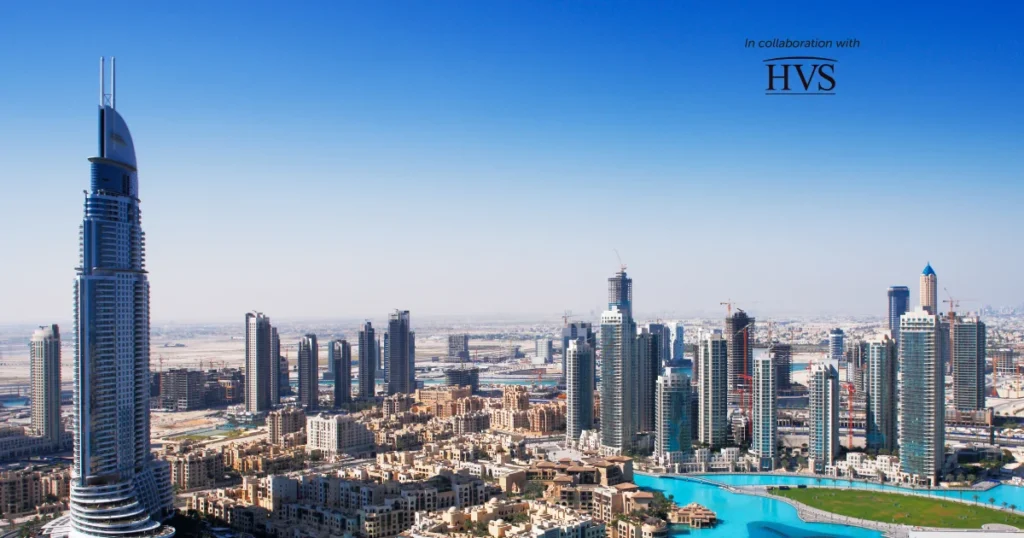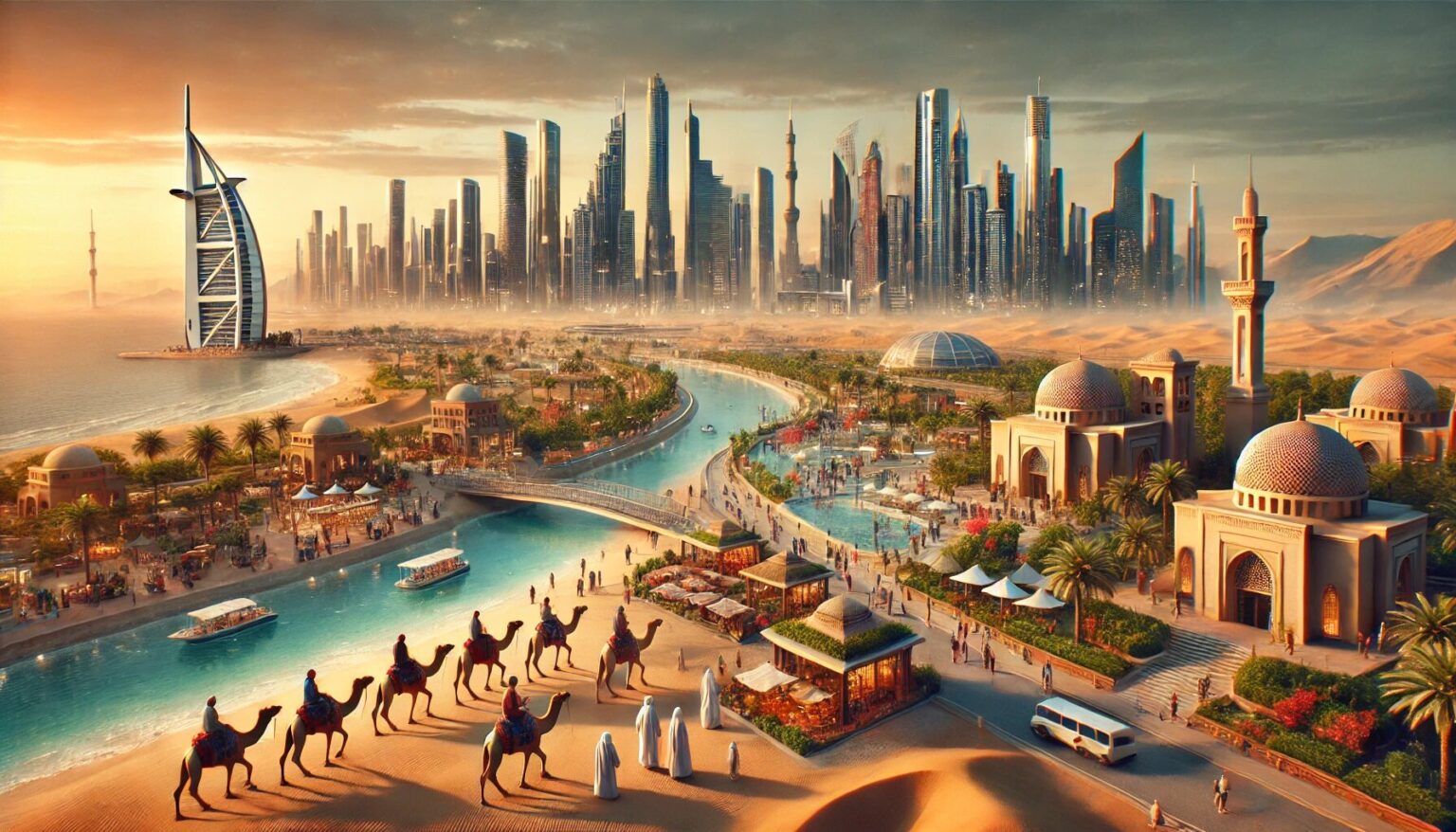The Gulf region, traditionally known for its oil wealth, is undergoing a significant economic transformation. Recognizing the risks of over-reliance on hydrocarbons, Gulf nations are actively investing in finance, technology, tourism, and renewable energy to build a diversified and sustainable economy. The shift is driven by ambitious national visions, including Saudi Arabia’s Vision 2030, UAE’s Economic Vision 2030, and Qatar’s National Vision 2030. These plans focus on fostering new industries, attracting foreign investment, and ensuring long-term economic stability.

Finance Sector Expansion: A Global Hub for Investment
The Gulf region is rapidly positioning itself as a financial powerhouse, attracting multinational companies, banks, and investors. The establishment of financial free zones such as the Dubai International Financial Centre (DIFC), Abu Dhabi Global Market (ADGM), and Bahrain Financial Harbour has strengthened the region’s appeal as a global financial hub.
Saudi Arabia’s Public Investment Fund (PIF) plays a crucial role in driving economic diversification by investing in major global industries, including technology, healthcare, and entertainment. The UAE, on the other hand, is fostering fintech growth with initiatives such as Dubai Fintech Hive, an accelerator program supporting innovative financial technology startups.
Technology: The Gulf’s Digital Transformation
Investment in technology is a cornerstone of Gulf nations’ economic strategies. The UAE and Saudi Arabia have taken the lead in advancing artificial intelligence (AI), blockchain, robotics, and smart city development. Dubai launched the UAE AI Strategy 2031, aiming to integrate AI into various sectors, including healthcare, education, and transportation.
One of the most ambitious tech-driven projects in the region is NEOM, Saudi Arabia’s $500 billion smart city. NEOM is set to redefine urban living through AI-powered infrastructure, automated transportation, and renewable energy sources. The Gulf nations are also investing heavily in research and development, creating innovation hubs to attract global tech companies and entrepreneurs.
Tourism: A Thriving Non-Oil Revenue Stream
Tourism has emerged as a vital economic pillar for Gulf countries, with Saudi Arabia, the UAE, and Qatar leading the way in attracting international visitors. The FIFA World Cup 2022 in Qatar showcased the region’s ability to host large-scale global events, significantly boosting the tourism sector.
Saudi Arabia is opening up to international tourists through initiatives such as Riyadh Season, AlUla Heritage Site, and the Red Sea Project, a luxury tourism destination. Meanwhile, Dubai and Abu Dhabi continue to be top global tourist destinations, offering attractions like the Burj Khalifa, Louvre Abu Dhabi, and Expo City Dubai.
Renewable Energy: A Sustainable Economic Future
With the world transitioning to cleaner energy sources, Gulf nations are investing in solar, wind, and hydrogen energy to secure a sustainable economic future. The UAE’s Mohammed bin Rashid Al Maktoum Solar Park is one of the largest solar energy projects globally, while Saudi Arabia’s Sakaka Solar Plant contributes significantly to its goal of generating 50% of its energy from renewables by 2030.
Qatar is also prioritizing renewable energy investments as part of its National Vision 2030, focusing on reducing carbon emissions and increasing sustainability efforts. These projects not only support environmental goals but also position the Gulf as a key player in the global green energy market.
Challenges in Economic Diversification
Despite these ambitious initiatives, the transition to a diversified economy presents challenges:
- Workforce development: There is a need for more skilled professionals in finance, technology, and renewable energy sectors.
- Reducing oil dependency: While non-oil industries are growing, oil revenues still play a dominant role in Gulf economies.
- Global economic fluctuations: External factors, such as geopolitical tensions and global recessions, can impact foreign investments.
The Road Ahead: A Balanced and Sustainable Gulf Economy
Gulf nations are making significant strides toward reducing their dependence on oil by investing in finance, technology, tourism, and renewable energy. The journey toward a balanced and sustainable economy is ambitious, but the steps taken today will shape the region’s long-term prosperity. Below are the key elements defining the Gulf’s economic future:
1. Strengthening Non-Oil Sectors
- Finance: Expansion of financial hubs like Dubai International Financial Centre (DIFC), Abu Dhabi Global Market (ADGM), and Saudi Arabia’s Public Investment Fund (PIF) to attract global investors.
- Technology: Massive investments in artificial intelligence, robotics, blockchain, and smart cities (e.g., NEOM in Saudi Arabia).
- Tourism: Transforming the region into a global tourism hub with projects like Riyadh Season, AlUla, Expo City Dubai, and FIFA World Cup-driven investments in Qatar.
2. Renewable Energy and Sustainability Initiatives
- Solar and Wind Energy: Projects like Mohammed bin Rashid Al Maktoum Solar Park (UAE) and Sakaka Solar Plant (Saudi Arabia) are driving the transition to clean energy.
- Green Hydrogen: Saudi Arabia and the UAE are positioning themselves as key players in the hydrogen economy to meet global sustainability goals.
- Sustainable Cities: NEOM’s The Line and UAE’s Masdar City are pioneering eco-friendly urban development.
3. Innovation and Workforce Development
- Education and Training: Gulf nations are focusing on STEM education, AI research, and tech-driven skill development to prepare the workforce for future industries.
- Entrepreneurship Support: Investment in startups and fintech incubators (e.g., Fintech Hive in Dubai and Fintech Saudi) to boost innovation.
4. Challenges on the Path to Economic Diversification
- Talent Shortage: Need for more skilled professionals in emerging sectors like AI, fintech, and renewable energy.
- Economic Fluctuations: Global market uncertainties and oil price volatility still impact regional economies.
- Regulatory Adaptation: Balancing rapid innovation with regulatory frameworks to ensure smooth transitions in finance and tech sectors.
5. The Future Vision: A Resilient and Prosperous Gulf
Gulf nations are committed to a sustainable, technology-driven, and diversified economy. By continuing strategic investments, policy reforms, and global partnerships, they are securing a future that is not only economically strong but also environmentally sustainable and globally competitive.
Do follow on Instagram
Also Read: “Strengthening Gulf Security: Overcoming Challenges & Seizing Strategic Opportunities”



